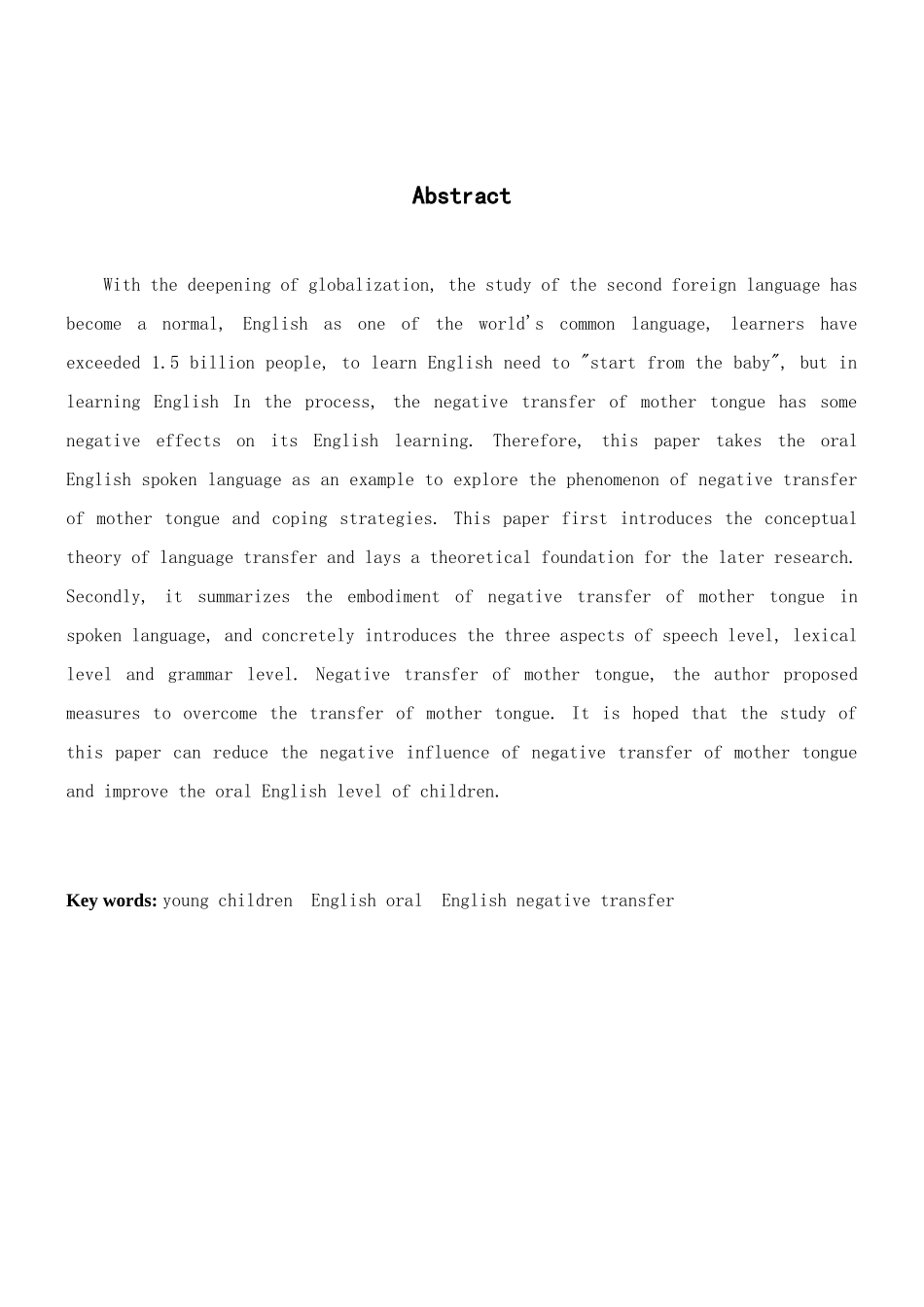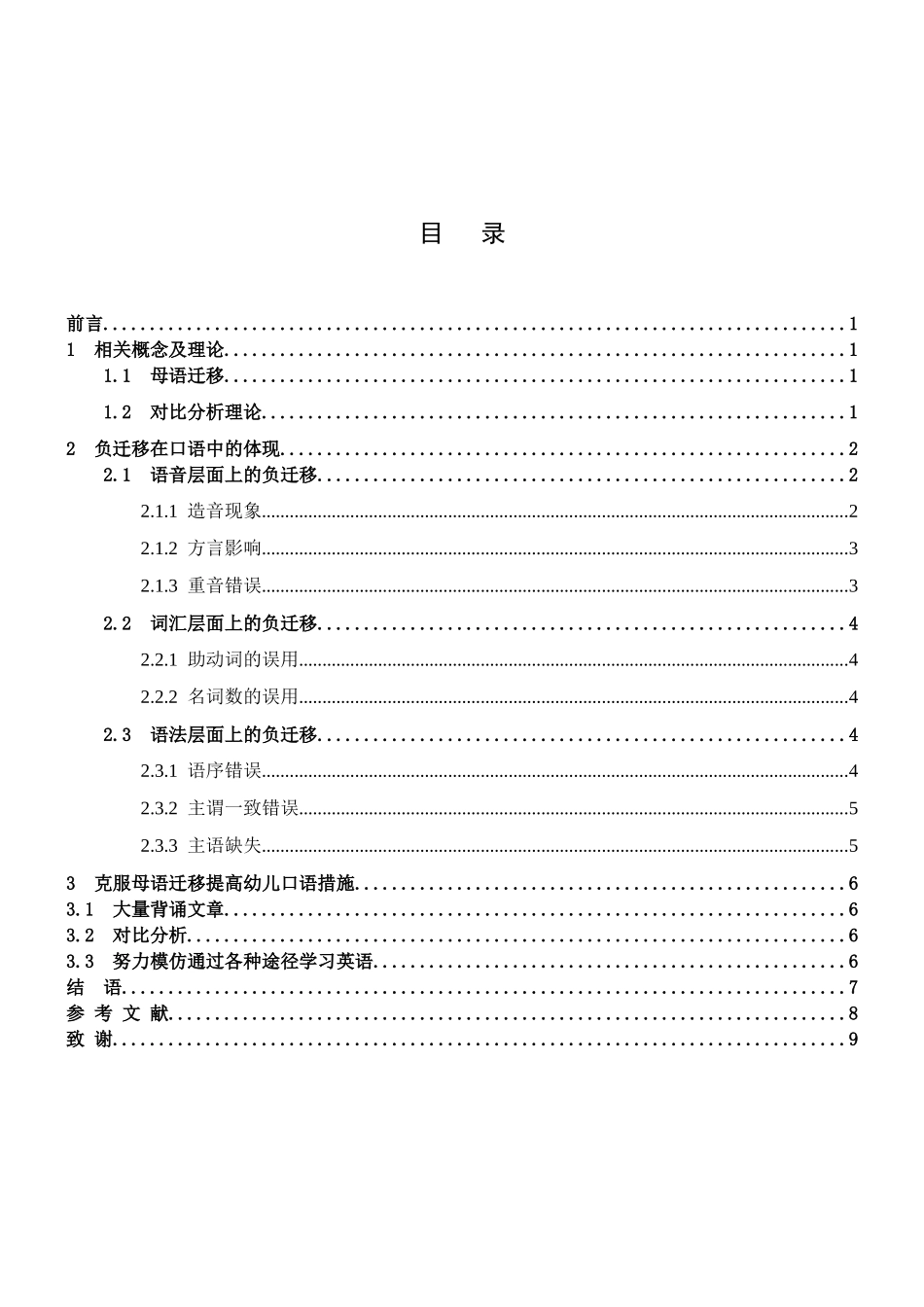论文题目:幼儿英语口语中母语负迁移的现象与应对策略 摘 要 随着全球化的不断深化,第二外语的学习成为一种常态,英语作为全球通用语言之一,学习者已超 15 亿人,要学好英语需“从娃娃抓起”,但在学习英语的过程中,母语的负迁移对其英语学习产生一定的不良影响,故而本文以幼儿英语口语为例,探析母语负迁移的现象及应对策略。文章首先介绍了语言迁移的概念理论,为后文的研究奠定理论基础;其次概述了母语负迁移在口语中的体现,具体从语音层面、词汇层面、语法层面三个层面上具体介绍;最后针对母语负迁移,笔者提出了克服母语迁移的措施。希望本文的研究可以降低母语负迁移的消极影响,提高幼儿英语口语水平。关键词:幼儿英语 英语口语 母语负迁移AbstractWith the deepening of globalization, the study of the second foreign language has become a normal, English as one of the world's common language, learners have exceeded 1.5 billion people, to learn English need to "start from the baby", but in learning English In the process, the negative transfer of mother tongue has some negative effects on its English learning. Therefore, this paper takes the oral English spoken language as an example to explore the phenomenon of negative transfer of mother tongue and coping strategies. This paper first introduces the conceptual theory of language transfer and lays a theoretical foundation for the later research. Secondly, it summarizes the embodiment of negative transfer of mother tongue in spoken language, and concretely introduces the three aspects of speech level, lexical level and grammar level. Negative transfer of mother tongue, the author proposed measures to overcome the transfer of mother tongue. It is hoped that the study of this paper can reduce the negative influence of negative transfer of mother tongue and improve the oral English level of children.Key words: young children English oral English negative transfer目 录前...


